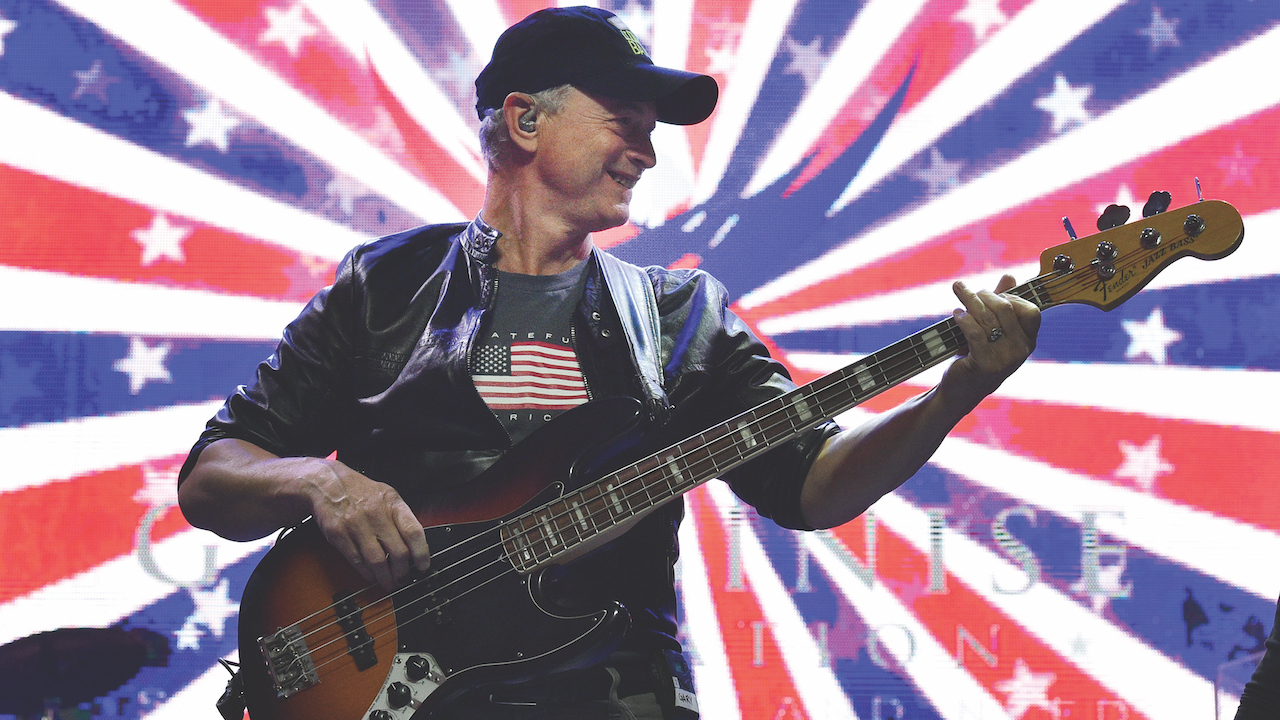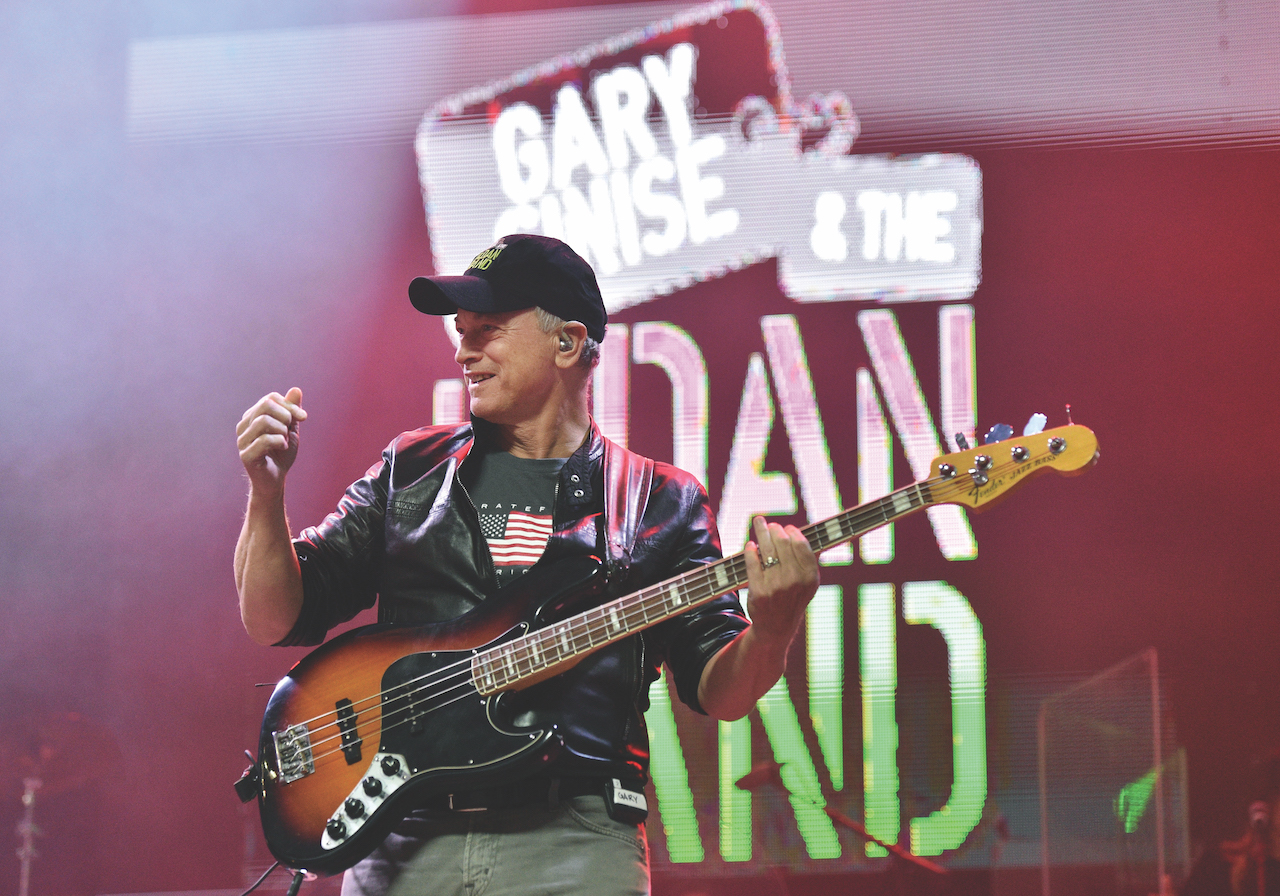
The actor Gary Sinise is best known among cinema fans for playing Lieutenant Dan Taylor in Forrest Gump, the popular 1994 movie. Lt. Dan, a Vietnam war veteran who loses his legs in combat and most of his sanity on returning to the USA, eventually finds peace with the help of his fellow veteran Gump, and remains the film’s most complex character.
Given the character's trajectory, his name is a perfect fit for Sinise’s rock ensemble, the Lt. Dan Band, which plays regular shows for military personnel and their families, with Sinise himself holding down the bass.
The Lt. Dan Band is just one element of the Gary Sinise Foundation, a fundraising organization that has been working since 2011 to benefit members of the American armed forces. One notable part of the Foundation’s work is the Restoring Independence Supporting Empowerment (R.I.S.E.) program, which builds smart homes for wounded veterans, and supplies home modifications, mobility devices, and adapted vehicles to them and their families. Another is the Relief & Resiliency program, which supports soldiers before and after active duty. The Foundation also runs the Invincible Spirit festivals, a Snowball Express campaign to benefit children who have lost parents in combat, and a long list of other initiatives.
How do you find time to practise your bass playing?
Gary Sinise: “Ha ha! I don’t. Here’s the thing about me. I started playing bass in seventh grade. I was playing guitar before that, and then along came a few guys that played the guitar a lot better than I did. So I picked up the bass and started playing it, and I really enjoyed it, so I played in my high-school years and into my early twenties. But then I didn’t play for quite some time, because I was building a theatre company, Steppenwolf Theatre, and I was focusing on my acting. I picked up the bass again in the late 90s, just for fun. The other musicians in my band all make their living playing music, but I only pick up the bass when I’m going on stage to play for the troops, unless there’s a new song that I’ve got to brush up on.”
Which bass players did you admire when you were coming up?
“Well, I still play like the guys that I was listening to back in the Sixties. One of my favorite guys was Jack Bruce. I play like Jack, or at least I try to, and John Entwistle and guys like that, from back in the days when I was really focusing on music before I got into acting. When I picked the bass up again, I went right back to trying to play like Jack Bruce and those other guys.”
Have you improved as a bass player since then?
“Yes, I’ve gotten better at it. At the beginning, I just went right back to ‘Okay, what do I remember from when I was playing years ago?’, and that’s what I did. We built a setlist that has a pretty good variety of cover tunes. You know, I’m not in the music business to write music: like I said, I play for the troops, so I wanted to put a pretty good variety of genres on there, from classic tunes to contemporary songs to swing to country, rock and roll, blues, Motown, soul... It goes all over the map. It’s a pretty good arrangement of songs that everybody is going to like. You’ve got little kids that are singing away, and then you’ve got old-timers that love the classics that we’re doing. Because of that, it challenges me to step up and cover the basslines so that the other members can really rock out.”
Which basses do you play?
“I have a Fender Jazz. I played a few different basses over the years – a Line 6, and a Cort – but you know, I eventually found my way right back to the Fender. It’s a beautiful bass and it always sounds good. My guys keep it working for me real well, so I’ll show up and throw it on and go out there and have some fun.”
Presumably, given your setlist, you’re not going to be doing any 64-bar tapped solos?
“Right. In my environment, no-one would want to hear that, as much as I might want to hear it. I’m not out there to play for myself. I’m out there to play for the other folks. There’s so many bass players I love, like Victor Wooten and Marcus Miller and people like that, and these guys are just monsters. That’s their thing. That’s what they were born to do, so that’s what they do. I was just an actor who picked up the bass because I wanted to entertain the men and women who serve our country.”

What challenges does your Foundation face, Gary?
“I’ve been working in support of our veterans for many, many years, and there have certainly been some difficult times over those years. We’ve obviously faced a bit of a challenging time having withdrawn from Afghanistan, and having so many Afghanistan veterans questioning what that was all for, given how it all ended. So we’re definitely facing new challenges with mental wellness and all of that with regards to our Afghanistan veterans, but we face challenges every day. There’s a lot of people that serve our country and make sacrifices. Nobody ever knows about it, and they deserve our support, and that’s why I started my Foundation. That’s why we’ve got so many generous individuals who want to support us, because we’re actually providing a good service for people.”
The scale of what you do is huge. You’ve raised almost $300 million over the last decade.
“Well, it’s certainly grown. When we started, there was one donor—me. Over the years, we’ve grown to over 100,000 donors and we’ve raised more and more money every year. My intention is to continue to build something that will last and be of service to people for many years to come. Thankfully we have the trust of the American people, who want to support our veterans. They allow us to do great things.”
What inspired you to launch the Foundation?
“I go back to the Vietnam days, and so much of what I do is inspired by the lack of support that Vietnam veterans in the United States got when they came home from war, when they did not have the service that they deserved. When we later deployed to Afghanistan and Iraq, and people started getting killed, and families started losing loved ones, the first thing that I did was just go and show up and just try to express my support and appreciation for the fact that they were doing what they were doing. I’m not going to be able to affect whether somebody gets deployed or not to a war zone. You know, I can scream and yell all I want, if I don’t think they should go, but the bottom line is that they’ll probably go anyway. If they’re going to go, then I want them to know that I appreciate it.”
Should governments do more to look after those veterans and their families?
“I think government absolutely has a role to play. Governments are the ones that deploy the troops to various places around the world, and sometimes it’s a very dangerous business. But I think citizens also have a role to play, because there are men and women who defend us and protect us, and we benefit from their sacrifices and the service that they provide. As beneficiaries of that sacrifice, I feel like we all have a role to play in making sure that they have services, or at least feel appreciated.”
Have you considered entering politics?
“Oh no, never. You know, I’m a private sector guy. I feel that there’s a way that I can show support, simply as a citizen. I’ve had a blessed career. I live in freedom, and I have the freedom to do what I want. Because of that, there’s lots of things I can do as a private citizen to show my support.”
I was hoping we’d see a bass player in the White House someday.
“Maybe we will – but it might not be me!”
For more info on the Lt Dan Band and the Gary Sinise Foundation, visit their websites.







